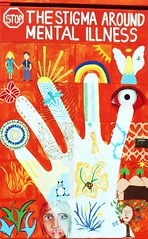It is often said that we should learn from our mistakes. It stands to reason, then, that we should also learn from our successes. Both failure and success carry lessons, but those lessons rarely exist in isolation. They come alive when they are shared.
When we tell our stories of what went wrong, what went right, and of what surprised us along the way, we create vessels for learning that extend far beyond ourselves. Stories allow experience to travel. They give us insight to be carried from one life to another, from one generation to the next. This is what makes storytelling so powerful and so essential. If we became better at telling our stories, and just as importantly, better at listening to them, entirely new possibilities would emerge.
Human history, in all its brilliance and brutality, is built on story. Every act of compassion and every act of harm, every innovation and every collapse, has been shaped by the stories we tell ourselves about who we are, what we belong to, and what matters. Our stories are not history accessories—they are history. To move forward wisely, we must reconnect meaningfully and purposefully with what might be called our “long now” history: an understanding of the past that informs the present and shapes the future with intention.
This requires us to think carefully about how we contextualize our experiences across time. How do we frame our past without being trapped by it? How do we live fully in the present without losing perspective and imagine a future that is informed by wisdom rather than reaction? These are not abstract questions; they are deeply human ones.
Yet, amid the pace of modern life and the relentless pressure to get ahead, many of us have lost touch with our own cultural roots—and with the cultural stories of others. A curious irony emerges here. We are more connected than ever before. Technology places us in constant proximity—physically, socially, and communicatively. We see more of one another, hear more from one another, and have unprecedented access to global perspectives.
And yet, we are simultaneously more distant than ever.
In our quest to define ourselves, to protect our identities, or to carve out a sense of certainty in an increasingly complex world, we have built silos. We curate our circles, filter our feeds, and retreat into spaces that feel familiar and affirming. While this can offer comfort, it also narrows our understanding of the environments in which we find ourselves. Proximity without connection is not the same as a relationship. Exposure without curiosity does not lead to understanding.
In Canada, we often celebrate our multiculturalism—and rightly so. Diversity has long been, and continues to be, a defining strength of our society. But in a globalized world, multiculturalism alone is no longer enough. Different people have always coexisted on this planet. What is required now is a shift toward interculturalism.
Interculturalism moves beyond the idea of simply existing alongside one another. It calls us to engage. Our race, religion, gender, sexual orientation, style, emotional expression, ways of thinking, and lived experiences all contribute to our personal cultures. These elements shape how we see the world and how the world sees us. They connect us to groups while also helping us to be uniquely ourselves.
Agreement is not the prerequisite for understanding. Whether we share the beliefs or perspectives of others is far less important than whether we are willing to learn about them. Tolerance is passive. Acceptance is a starting point. Understanding, however, requires effort, humility, and the right amount of time.
And there is no better way to build understanding than through story.
Stories humanize what might otherwise feel abstract or distant. They invite empathy where judgment might otherwise take hold. When we truly listen to someone’s story, we are reminded that behind every perspective lies a person shaped by their experiences, context, and meaning. In doing so, we learn about others and deepen our understanding of ourselves.
If we are serious about building more connected, compassionate, and resilient communities, we must reclaim storytelling as a shared responsibility. We must make space for unheard voices, histories that have been overlooked, and experiences that challenge our assumptions. Only then can we begin to bridge the distance that modern life has created.
Our stories are not just reflections of who we are. They are tools for who we might become.









